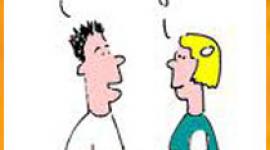American Psychiatrist Calls Shock 'Barbaric'
Kenora Enterprise
July 20, 1997
By Jim Mosher
 Psychiatrist and author Peter Breggin says shock treatment is little more than an electrical lobotomy. Breggin says electroconvulsive therapy (ECT) causes brain damage - and, he says, most psychiatrists know it.
Psychiatrist and author Peter Breggin says shock treatment is little more than an electrical lobotomy. Breggin says electroconvulsive therapy (ECT) causes brain damage - and, he says, most psychiatrists know it.
"It's barbaric," Breggin said during a recent telephone interview from his summer home in West Virginia. "It causes brain damage. That was the argument used when it was first introduced in 1938. It was held as an electrical lobotomy."
Breggin has written more than a dozen popular books about modern psychiatry, including Toxic Psychiatry and Talking Back to Prozac. In Toxic Psychiatry, he makes the claim that ECT is bad medicine, and worse when it's combined with drugs.
He says claims that ECT is safer now than when it was first introduced are typical of the siege mentality of psychiatric associations, which he claims always go to bat for whatever technique is in fashion.
"They claim that it is safe, but there have never been any follow-up studies," he said. "If you claim a technique is safe, you have to show that with animal studies."
"To say that things are safer and better now is not true," he continued. "They said that in the '50s about lobotomies."
(Frontal lobotomies were a standard treatment in the 1950s. A portion of the frontal lobe of the brain was removed, usually by drawing it out through an eye socket. At the time, psychiatrists cited the witnessed 'improvement' in previously combative patients. Neurological studies later showed that the improvement resulted after some essential brain functions were literally eliminated after the removal of the frontal lobe. The practice has since been discontinued.)
Shock treatment is often combined with drug therapy. That's hardly surprising to Breggin. "It shows you how inadequate ECT is - they load you up with drugs," he said.
Professional psychiatric organizations have come out squarely behind ECT as a necessary and safe treatment for acute depressive disorders.
The Canadian Psychiatric Association's most recent position paper on the treatment notes that ECT remains "an important part of the therapeutic armentarium in contemporary psychiatric practice."
The CPA says ECT is a suitable treatment for single episode or recurrent major depression, bipolar disorder and chronic schizophrenia.
"For these disorders, there is either overwhelming evidence in the literature attesting to the efficacy of ECT or a consensus among experienced Psychiatrists as to its position paper.
But the use of ECT to treat other disorders should only be undertaken in "exceptional circumstances" because "compelling evidence of the effectiveness of ECT' (in these circumstances) is lacking."
Breggin remains uncowed. He's convinced of the barbarity of ECT. He says it takes away one's identity. It's hardly surprising that ECT patients are more pliant and cooperative, he says. That witnessed improvement is due, he claims, to brain damage.
In Toxic Psychiatry, he cites cases where ECT was used to make a previously combative and disputative wife into a docile and submissive 'perfect wife'. Breggin says there is reason to fear this 'social engineering'.
He says few psychiatrists are willing to speak out against ECT. "It's simply not true that all psychiatrists agree with this treatment," he said. "But I've been one of the few who has been willing to take a stand."
next: An Introduction to Neuropsychological Assessment
~ all Shocked! ECT articles
~ depression library articles
~ all articles on depression
APA Reference
Staff, H.
(1997, July 20). American Psychiatrist Calls Shock 'Barbaric', HealthyPlace. Retrieved
on 2025, April 18 from https://www.healthyplace.com/depression/articles/american-psychiatrist-calls-shock-barbaric



